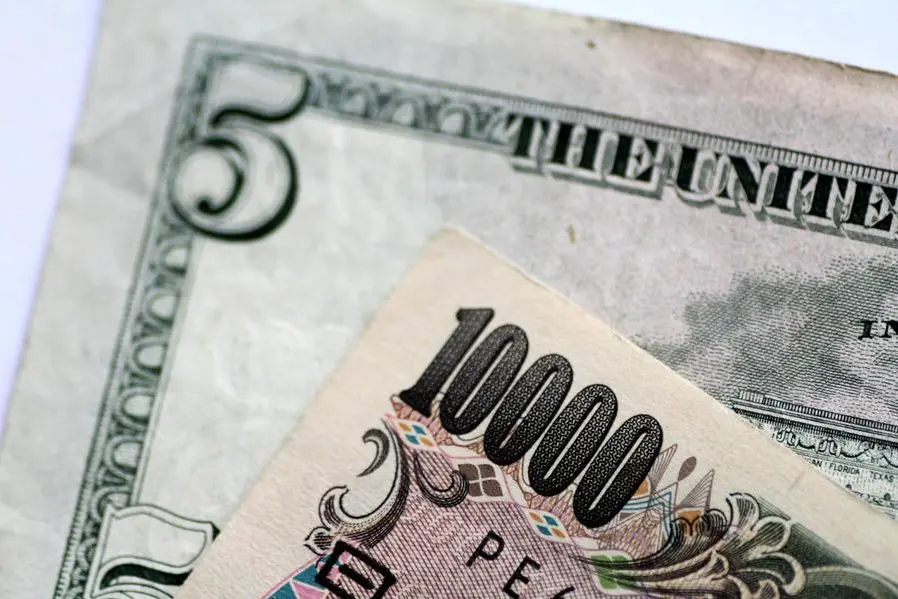PHOTO
(The opinions expressed here are those of the author, a columnist for Reuters)
ORLANDO, Florida - Hedge funds have built up their biggest bet against the yen in 17 years, raising the prospect that when Japan's embattled currency does rebound from its 34-year low against the dollar, the short-covering rally could be a powerful one.
The latest Commodity Futures Trading Commission data show that speculators' net short yen position is the largest since June 2007, and one of the biggest since yen futures contracts were launched in 1986.
The yen is down nearly 9% against the dollar since Jan. 1, making it the worst-performing G10 currency this year. The Swiss franc is down almost as much, but the Swiss National Bank has cut interest rates whereas the Bank of Japan has raised them.
With yen positions so stretched, it might not take much to prompt funds to trim them back and cash in.
As the threat of yen-buying intervention from Tokyo rises the higher dollar/yen goes, and with the potential for safe-haven demand following the latest flare-up in Middle East tensions suddenly in the mix too, traders short of yen will be on edge.
But right now yen-selling momentum is strong and if you're on the right side of the trade, the trend is very much your friend.
"The leveraged community has the bit between the teeth, is earning carry and capturing gains, in the face of a finance minister who is big on watching the FX market and short on action," Societe Generale's Kit Juckes wrote on Monday.
"We think the yen is very oversold here, but decades of overshoots tell us to be patient," he added.
In the week through April 9, CFTC funds increased their net short yen position to 162,151 contracts, the biggest net short in 17 years. In dollar terms it is a $13.4 billion leveraged bet against the yen, the largest since February 2018.
A long position is essentially a bet that an asset will rise in value, and a short position is a wager its price will fall.
Funds have increased their net short yen position in 11 of the last 13 weeks, the two outliers being in the run-up to the BOJ's historic interest rate hike in March.
The value of CFTC funds' yen position accounts for 60% of their aggregate $21.9 billion long dollar position against G10 currencies, the most bullish bet on the greenback since late 2021.
Given the dramatic repricing of the U.S. interest rate outlook recently and sharp rebound in U.S. bond yields, the migration to the dollar is unsurprising. The Fed's relative hawkishness is making the dollar the only game in town.
But Steve Barrow at Standard Bank in London cautions against over-optimism, and suggests Japanese intervention would not only send the dollar spiraling lower against the yen, but more broadly too.
"It is worth remembering that intervention by the BOJ back in September/October 2022 appeared to spark a more general decline in the dollar against other currencies. This is another reason why we have not lifted our forecasts for the dollar materially," he wrote in a note on Monday.
(The opinions expressed here are those of the author, a columnist for Reuters)
(By Jamie McGeever; editing by Jonathan Oatis)





















